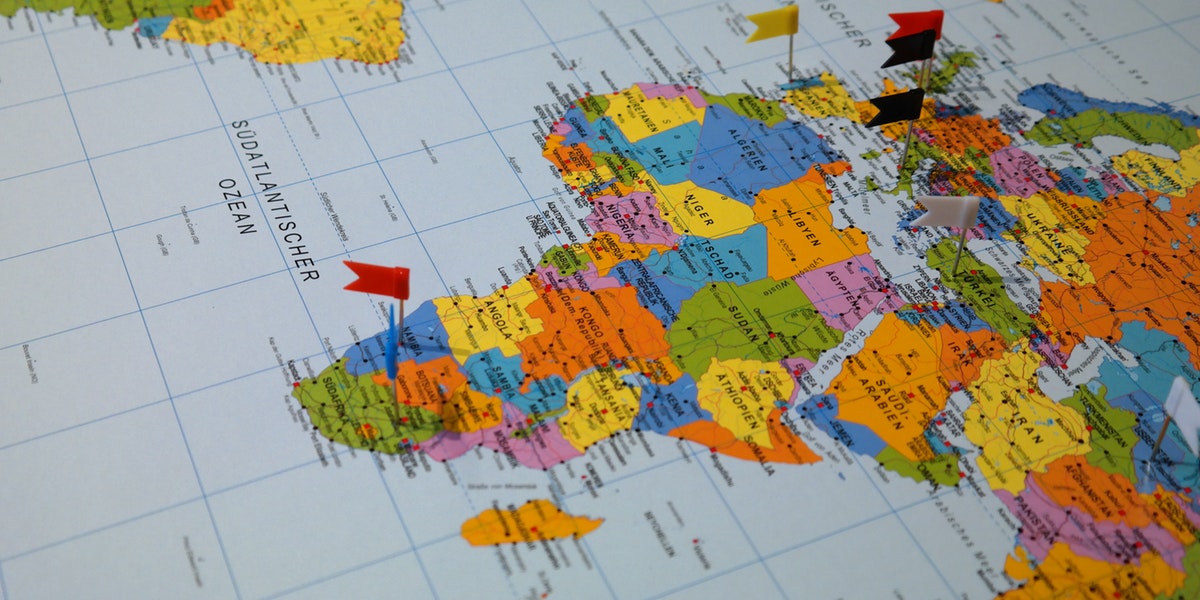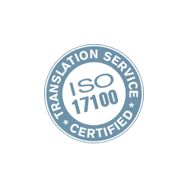How To Learn a New Language – 30 Day Language Challenge
Move over mannequin and toilet roll challenge, there’s a new kid in town.
Although our 30 day language challenge may not earn trending status on Twitter or be shared by countless celebrities, it will give you a huge sense of achievement, a valuable new skill and a good excuse to update the ol’ Curriculum Vitae.
The best way to learn a new language is like most things in life: practice, practice, practice.
That’s where we come in.
Using tips provided by our employees and customers, we’ve created a 30 day language challenge to put you through your paces and fast track you to multilingual stardom!
Whether it’s French, Korean, Arabic or Italian you’re looking to master, these daily challenges will set you on your way to reaching polyglot status.
If you’re looking to ease yourself into multilingual life, our best languages to learn in 2020 article offers a wide variety of choices with varying difficulty levels attached to them. On the flipside, our hardest languages to learn post is also out there for you brave souls!

30 Day Language Challenge
Estás listo? Let’s go!
Day 1 – Decide on a Language and Download a Language App
Once you’ve weighed up the options and chosen your preferred language, it’s time to pick a language learning tool. There are plenty of useful and fun apps to help you like Duolingo, Babbel, Memrise and Rosetta Stone are all some of the best language learning apps that provide valuable resources that prepare you for real-life conversations. Substitute scrolling through Instagram with a German grammar test after dinner!
Day 2 – Write Down your Monthly Language Goals or Targets
Setting goals is a great way of keeping on top of your life admin. Combine this with your new language learning project and you can kill two birds with one stone!
Use your language app to retrieve the words you need and note down any unfamiliar phrases. Once you’re done, recite what you’ve written and test yourself every week. Alternatively, you can make a language study plan by setting yourself strict times and prioritising what you want to learn.
Day 3 – Learn the Alphabet
This challenge will vary in difficulty depending on which language you choose. For example, the Hebrew alphabet is going to be much trickier to learn for English speakers as opposed to the Spanish alphabet given the phonetic differences of the Hebrew alphabet. Nonetheless, no mountain is too high and there’s usually a catchy song on YouTube that is bound to get stuck in your head.
Day 4 – The Centurion Challenge
Don’t worry, this challenge is a little tamer than its namesake drinking game. The challenge is simple; make 100 flashcards using 100 different words and phrases of your choice. Set yourself a target and don’t be afraid to treat yourself to a prize if you beat it. Electronic flashcard programmes like Anki are great for storing large stacks on your Smartphone as well as helping to save the trees. You can read our most useful Spanish phrases, English to Gaelic translations, or handy Polish terms to get you started.
Day 5 – Practice with a Native Speaker
Throwing yourself into the deep-end and speaking to someone in their native language is arguably the easiest and quickest way to learn a language. You may have to pay for a partner if you’re learning a rather obscure language, but many cities have conversation clubs where keen learners go to practice by having informal discussions.
In the current climate, websites like My Language Exchange offer you the opportunity to speak to native speakers on Skype if meetups are not possible. It’s also a great way to learn some slang and get street-savvy!
Day 6 – Tackle Basic Grammar
It may not be the most exciting task, but cracking a foreign languages’ grammar rules is the crux of understanding a deeper meaning of the language. Stick the rules around your house and we promise you they’ll be ingrained in your subconscious in no time. Once you’ve mastered the grammar, you’re halfway there!
Day 7 – Listen to Music in your Chosen Language
Whether it’s Portuguese rap or Mandarin rock music, listening to foreign songs along with their lyrics is as hysterical as it is rewarding. Try and see how much you can work out and jot down any words that you find of interest and add them to your flashcard list. Focus on one song and sing it until the cows come home! It’s also a great party trick to have in your armoury.
Day 8 – Change your Device Settings to your New Chosen Language
Despite the majority of smartphone navigation being based on muscle memory, changing your Android or Apple phone settings to the language you’re trying to learn is hugely valuable. While you’re at it, make sure you change your social media, PlayStation and Spotify accounts too.
Day 9 – Label Household Items
It may look like something in between a treasure hunt and a crime scene, but going around and labelling household items is a quirky way to learn new words that are close to your heart. Sticky notes are ideal and you can stir up a bit of friendly rivalry by getting your flatmates or partner involved.
Day 10 – Follow Social Media Influencers and YouTubers who speak the Language you are Learning.
If you haven’t already, search for role models and people of interest who already fluently speak the language you’re learning. Get involved in the discussion points and attempt to translate their post without using an online service. Get into a habit of noting unfamiliar words and add them to your bank of flashcards.
Day 11 – Make 100 New Flashcards if you Passed the Previous Test
If you have passed the Centurion Challenge (we recommend a pass rate of 80/100), choose 100 more words or phrases you are unfamiliar with. A good way to organise the words that you are learning is to split them up into different categories. For example, choose 20 countries, 20 items of food, 20 sports, 20 household items, and 20 animals.
Day 12 – Watch your Favourite Movie or TV Show in your Chosen Language (subtitles optional)
If you don’t know almost every word of your favourite movie, is it even your favourite movie? The fact that you already have a vivid recollection of the film will help you nail the best punchlines. If you’re feeling confident you can opt to remove the subtitles to see how you get on. “La vie, c’est comme une boîte de chocolat” – can you translate the famous quote and name of the movie? You can also check out our post detailing some of the best foreign films ever!
Day 13 – Translate the Morning’s News Headlines
Try and get into a routine of reading the morning’s news headlines in the language you’re learning. Not only will it improve your knowledge on a wide series of topics, it’ll also help your writing skills remarkably. Repeat this learning process every morning while you’re eating your Cornflakes and you’ll start recognising common words that will soon stick!
Day 14 – Write your Shopping List in your chosen Language
Why not turn your mundane shopping trips into a treasure hunt? Compile your shopping list in a different language and be on your way! We highly recommend that you study the list before you go so you’re not like a rabbit in the headlights in the vegetable aisle. Activate hard core mode and leave your phone at home so there’s no helping hand from our friend Google.
Day 15 – Find a Podcast you are Interested in
Find a podcast that tickles your fancy. It might be best to start off with an easy kid’s podcast and work your way up the difficulty ladder. Alternatively, you choose a podcast relating to a topic that you’ve been focussing on to see where you are in terms of your language skills.
Day 16 – Start a Journal About your Everyday Life
If you already write a journal this will be a simple transition – more of the same, but in your target language. If you’re new to writing a journal try and get into the habit of documenting incidents in your day-to-day life. Everything from the story of your commute to your Tesco meal deal should make the cut!
Day 17 – Read a Book
Again, it may be best to start off with a children’s book as it’s a great way to learn some basic language structure and vocab. Think of it as a trip down memory lane as you’re ordering your Roald Dahl classics in Korean and and your Harry Potter’s in Danish. I wonder what the Danish is for Golden Snitch?
Day 18 – Immerse yourself into the Culture
One of the beauties of the Internet is that you don’t have to visit a country anymore to immerse yourself in their culture. Use this challenge to learn about the food, history, art and sporting traditions of a foreign country that speaks the language you’re learning and write down five of the favourite facts you’ve learned. You never know, it may win you a pub quiz one day!
Day 19 – Make 100 more Flashcards….
Hopefully by this point, you’ll really start to see improvements in your progress. Pass the test and come up with another 100 words including the ones that you’ve been stuck on before. If you feel that it’s getting too easy, move on to harder words or longer phrases.
Day 20 – Write an email, Facebook or Instagram post in your chosen Language
Push yourself outside your comfort zone and take your language learning to the next level by implementing it into every aspect of your life. Don’t be scared to post on your Facebook or Instagram and nab yourself a pen pal that you can pass emails back and forth with.
Day 21 – Play a Board Game in your Chosen Language
Scrabble is a great shout if it applies to the language you’re learning – it may be a slight issue if you’re learning Arabic or Japanese! Alternatively, you can play cards and narrate what cards you have in your hand.
Day 22 – Plan a Trip
You don’t actually have to take the trip, but planning an itinerary of places to go, things to see, and food to eat is a great way to learn about a country and potentially forward a plan for a future trip. It’s a great excuse to watch a few travel videos!
Day 23 – Practice with the same Native Speaker (2 weeks later)
If possible, try and organise another meet up with the same native speaker so they can assess your progress. This will give you a great indication of where you are in your journey and gives you another opportunity to ask questions and gain great advice.
Day 24 – Commit to Speaking your Chosen Language for a Whole Day if Possible
Although it might feel like the emergence of your alter ego, speaking a second language for a whole day is a great achievement and a turning point in your quest to becoming a bilingual master. You’ll also have the satisfaction of having the upper hand on your parents at the dinner table!
Day 25 – Go to a Restaurant that Serves Food from a Country that Speaks your Target Language
As soon as you enter the restaurant, make it your mission to leave the restaurant having not peeped a word of English. If the floor staff speak the language, you should converse with them while ordering off the menu as it’s a great real-life situation that will warm you up for when you take that trip eventually.
Day 26 – Plan a Day in your Chosen Language
From the moment you wake up to the moment you close your eyes at night, you should prepare a plan of what you’re doing the following day. Include times and every activity under the sun including brushing your teeth, eating your lunch and going for a run.
Day 27 – Flashcard Test
Last and final flashcard test. Feel free to carry it on once the 30 days are up!
Day 28 – Write a Short Story
It doesn’t have to be long, but writing for a prolonged period of time is a good test of how far you have come. Use it as a task to perfect your grammar and sentence structure rather than writing a book that is going to win the Pulitzer prize.
Day 29 – Take Notes
Whether you’re taking the minutes for a work meeting or doodling in a university lecture, it’s great to get into a habit of trying to take notes. Instead of taking your notes straight away under pressure, write them out in English and take them home and translate them.
Day 30 – Create a Video and Record yourself Speaking the Language
Recording yourself is hard enough in your native tongue, so pulling off a 2 minute video where you’re able to speak fluently to a camera is a huge step towards achieving the goals you set out at the start of the challenge.

Conclusion
If you have the discipline and commitment to take on this challenge, there’s no limit to what you can achieve. Learning a language is no mean feat, so integrating it into your everyday life makes all the difference. So it’s important that when you commit to learning a language you choose the best language to learn for you.
Start off by setting yourself short term goals and noting down what you want to get out of this challenge. Like everything, the more you put into it, the more you’re going to get out!
Arrivederci e buona forutna!





